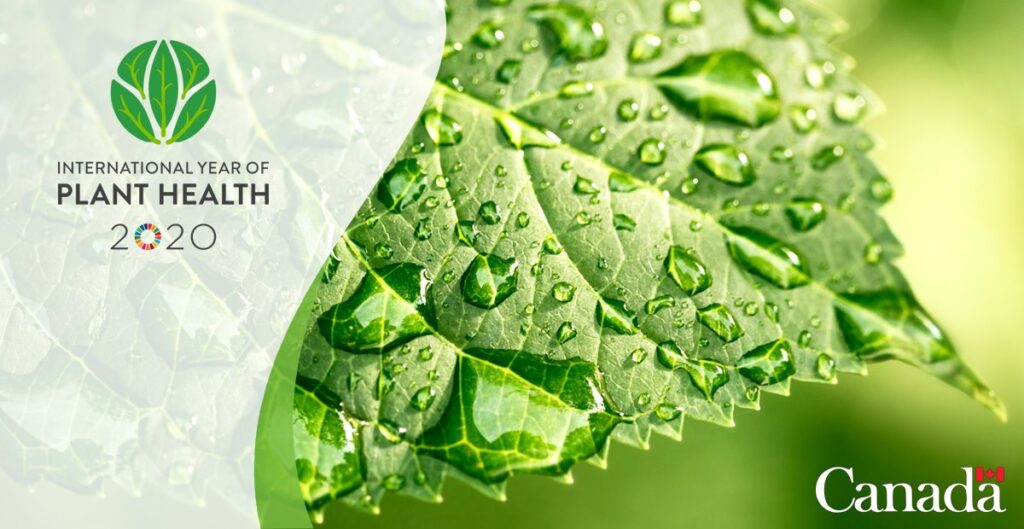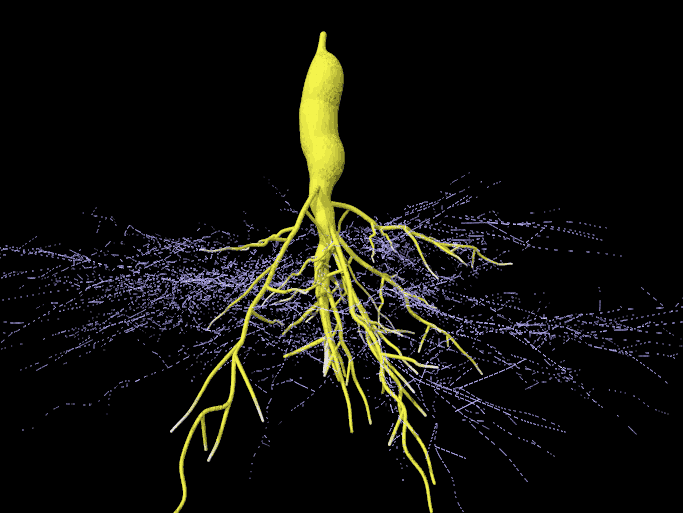
International Year of Plant Health
Since 1960 the United Nations have designated specific ‘International Years’ to promote international awareness for action on various global issues. On occasion, these issues are spearheaded by UN specialized agencies such as UNESCO, UNICEF or the FAO. Important issues are often highlighted including Human Rights, Peace, and Indigenous Peoples. This year the United Nations have proclaimed 2020 as the International Year of Plant Health.
According to the UN Food and Agriculture Organization, 20 to 40% of global food crops are lost annually due to plant pests. Each year plant diseases cost the global economy approximately $220 billion. Invasive insects contribute to a loss of roughly $70 billion.
2020’s UN designation is to raise global awareness on how protecting ‘plant health’ can help end hunger, reduce poverty, protect the environment and help boost economic development. Yes, these are ambitious goals but it just makes sense that something as simple as plant health can reduce world hunger!
Plant Health in the Garden
As gardeners, we know that Plant Health is vital to a successful food or ornamental garden. We are aware when plants are stressed. We know when plants are more susceptible to certain pests and diseases and that some diseases are common with various plant varieties.
What’s Changing?
With global trade and travel, the risks of plant pests spreading into new areas is higher than ever.
In just recent years the Emerald Ash Borer and Asian Long-horned Beetle have been brought to Ontario. Our environment and changes in weather patterns have been a contributing factor in the increase in plant diseases. Mosaic viruses are becoming an alarming problem as they are increasing and have no known remedy.
Ontario gardeners, including myself, have been battling Sooty Mold just within the last couple of years. (Sooty Mold has been specifically attacking my basil.)

Sooty Mold affecting Plant Health | Image Source: Joseph OBrien, USDA Forest Service, Bugwood.org
Extreme weather events of drought, intense heat waves and irregular rainfall patterns are predicted to be more common in the years to come. Changes in climate will affect parts of world agriculture. Rising temperatures in tropical regions could be damaging to crop production. In semi-arid areas of Africa and South Asia, crop production may no longer be feasible due to heat and drought.
What Can We Expect?
Scientists are using innovative methods to breed more productive and nutritious crops. 2020 is an exciting time for plant genetics. Successful plant breeding is helping farmers grow varieties that are healthier, resilient to drought and stronger in the face of diseases.
A major UN resolution is recognizing that plant health is the key to feeding the growing global population. As well, healthy plants constitute the foundation for all life on Earth. Source: www.un.org
What can we gardeners do? Here are a few ideas:
- Buy/Grow disease-resistant varieties
- Avoid stressing plants by choosing the right one for the right place
- Avoid introducing pests or diseases into our gardens via transfers from other gardens.
- Grow a variety of plants in good soil so our healthy balanced gardens encourage birds and positive insects to help maintain good plant health without pesticides. Learn More – Integrated Pest Management
More related reading
http://8ff.ad6.myftpupload.com/plant-selection-choose-the-right-plant-for-the-right-place/
http://8ff.ad6.myftpupload.com/go-native/





About The Author: Nancy Abra
The family kitchen garden has always been a big part of my life from the early days growing up on a farm to current days gardening near Thorndale, Ontario.
I have honed my gardening knowledge with various courses including a certificate in Horticulture from the University of Guelph, ongoing training with the London Middlesex Master Gardeners, active membership with the local Horticultural Society and as a volunteer gardener at Fanshawe Pioneer Village, It has always been important to me to feed my family from the best of my garden or from locally grown produce. For almost 50 years of preserving, canning, pickling, and using heirloom recipes including some of my own creations, I have developed tasty preserves for my family and friends which I market locally with the brand name "From My Garden".
More posts by Nancy Abra